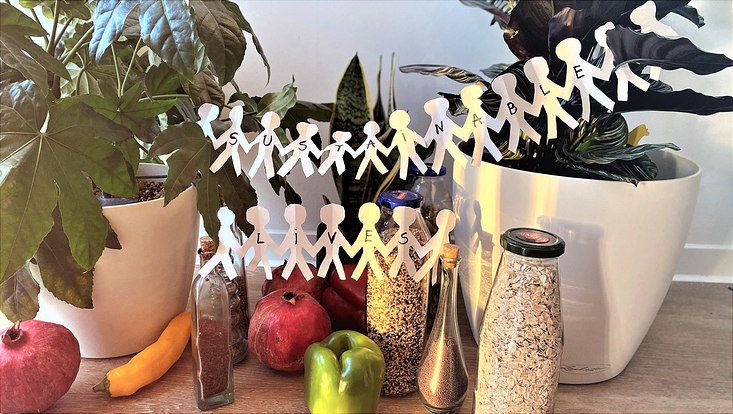Society Research
Third Interim Report of the CSS Working Group "Sustainable Lives"
22 May 2023, by CSS

Photo: private
“Sustainable Lives” was established to investigate the drivers of food choices. Spezifically, it is analyzed how media discourses, norms and attitudes about food relate to actual patterns of food consumption. The focus of the working group is not limited to food choices only and might be enlarged to other sustainable living choices and decisions, e. g. mobility, consumption, waste, nature preservation. Overall, the working group might attempt to clarify how these decisions are embedded in and influenced by discourses about politics, identity and sustainability, and which other factors (habits, infrastructure, norms etc.) play a role.
Were the objectives of the working group achieved or have the objectives changed during the funding period?
In 2022, the Working Group "Sustainable Lives" conducted scientific research on the role of discourses, attitudes, norms and lifestyles on sustainable consumption choices. The group members published six papers relating to various topics within the research theme, i.e. the influence of news consumption, social media and social environment on people's diets (Kley et al. 2022); ambivalence-motivated meat reduction (Paurer et al. 2022); experimental analysis of meat taxation (Perino&Schwickert 2022); identification of consumer segments of sustainable food consumption (Trübner et al. 2022); the framing of food in the media (Brüggemann et al. 2022), and in everyday discussions on Facebook (Hoppe&Kleinen- von Königslöw 2022).
What is the significance of the results of the Working Group for research in this field?
The unsustainability of people's modern lifestyles becomes more and more obvious as climate change, environmental degradation, and high levels of energy consumption become tangible. "Sustainable Lives" regards food choices as an important dimension of sustainable lifestyles in general, and aims at gaining insights into the causal mechanisms of sustainable lifestyle choices and their dependence of external factors.
What is the significance of the results for the sustainable development of society?
Leading sustainable lifestyles, including everyday food choices, is inevitable if we were to slow or even stop climate change. Food, i.e. nutrition, is one of the few topics that indeed affects everyone personally. The decisions for or against climate-friendly food, i.e. plantbased, organic, regional, fairly traded, seasonal food, depends on many personal and contextual factors. The Working Groups' analyses produced some results that are suitable to inform policy-making.
What turned out to be particularly exciting findings?
Based on a tailor-made survey carried out in Hamburg, Germany, Kley et al. (2022) have demonstrated that both individual news consumption via social media and having vegetarians in the social environment are associated with pursuing a vegetarian diet. Based on the same survey, Trübner et al. (2022) identified consumer segments in which certain aspects of sustainability are more or less important. Surprisingly, it was found that one group acting in a particular sustainable manner is not characterized by socio-economic status indicators, but well distributed across the Hamburg population. Adding to the body of literature on meat reduction motivations, Pauer et al. (2022) examined the association between ambivalence about eating meat and behavioral change in the context of meat consumption. Based on a referendum choice experiment, Perino and Schwickert (2022) investigated the consumers perception of a possible meat tax. Only for the lowest tax level tested, all tax variations received majority support. Across all tax rates, support appears to be greater when the tax is justified by animal welfare rather than climate protection. Brüggemann et al. (2022) analyzed more than 10,000 articles from German elite newspapers to demonstrate how food is framed in German news. According to the authors, there are five broader food frames, while pleasure and art of eating and drinking together with body and health concerns remain the most prominent. Hoppe and Kleinen-von Königslöw (2022) could show that sustainability of everyday food choices is intensively discussed on social media in Great Britain and Germany, whereas in other industrialized countries (US and Canada) or a developing economy (South Africa) concerns regarding ecological, social or economic sustainability of food consumption hardly play a role.
You can find out more about the Working Group here.


